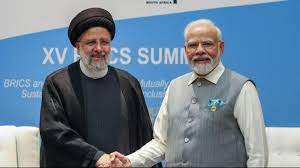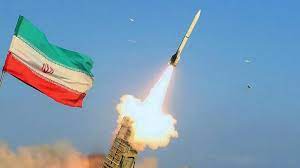West Asia Crisis: India treads carefully in complex, volatile West Asia amid Pak-Iran strikes
 VINAY KUMAR
VINAY KUMAR
NEW DELHI: Showing signs of defusing the conflict-ridden situation between them, both Islamabad and Tehran have sought to de-escalate tensions after Pakistan’s retaliatory strike inside Iran on Thursday in a tit-for-tat action. The two neighbors faced real threat of a full-scale conflict being blown up between them amidst fears of escalating tension throughout the Middle East.
Pakistan targeted Baloch militants inside Iran, two days after Iran attacked another militant group inside Pakistani territory. It was reported in Iranian media that missiles had hit a village in the Sistan-Baluchestan province, killing at least nine people, including four children while Pakistan said that the Iranian attack in its territory killed two children.
in New Delhi’s immediate neighbourhood, the Sunni militant group Jaish al-Adl in Pakistan’s Balochistan was attacked by air strikes carried out by Iran, the leading Shia power in West Asia. This was followed by Pakistan’s attack on alleged Baloch separatists inside Iran, though there were no signs of further escalation from Tehran or Islamabad. Interestingly, Iran seems to be the common thread running across the different forms of conflict in the region.
Pakistan’s foreign minister Jalil Abbas Jilani was quoted as saying that Islamabad does not wish to escalate the standoff with Iran. He spoke to his Iranian counterpart Hossein Amir-Abdollahian by phone and “expressed Pakistan’s readiness to work with Iran on all issues based on a spirit of mutual trust and cooperation. He also underscored the need for close cooperation on security issues, Pakisan’s foreign ministry said.
After the telephonic conversation, the Iranian foreign minister said that the sovereignty and territorial integrity of Pakistan was of great concern to Iran. The cooperation of the two countries to neutralise and destroy terrorist camps in Pakistan is essential,’’ he said in a statement.
However, trade activities between the two neighbours were reported to be uninterrupted at all the border points in the restive Balochistan province despite tensions between them. Iran’s target inside Pakistan was the ethnic Baloch and Sunni group known as Jaish al-Adl which came into existence around 2012. On its part, Pakistan said its targets were the Balochistan Liberation Front (BLF) and Balochistan Liberation Army (BLA), armed separatist groups which have carried out several attacks inside Pakistan.
It was also for the first time that Iran and Pakistan launched direct attacks on each other’s territory, flashing signs of regional tension escalating into a full-fledged conflict. Pakistan is in the middle of holding a national election and with hostilities along its border with Afghanistan and tension with India, it can ill afford to plunge into a wider conflict with Iran.
On its part, India chose a diplomatic way out by refraining from making any direct comments on Pak-Iran strikes against each other. The Ministry of External Affairs spokesperson emphasised the Centre’s zero-tolerance stance on terrorism and acknowledged a nation’s actions in self-defence. The Indian side understands “actions that countries take in their self defence’’.
Only a week ago, External Affairs Minister S Jaishankar was in Iran on a two-day visit and with his Iranian counterpart Hosein Amirabdollahian denounced terrorism in all its forms and manifestations. He also called upon Iranian President Ebrahim Rais to express condolences over the recent Kerman attack which was claimed by the IS and killed over 80.
India also raised the issue of threats to maritime shipping in the region and pointed out that it is important that this issue was addressed speedily. The apparent reference was to the targeting of merchant vessels in the Red Sea by Iranaian-backed Yemen’s Houthi rebels. Iran’s support to proxy wars is also well known as it supports Hamas and Hezbollah groups as well as gives full backing to Houthi rebels, tying itself in a complicated situation. Most of the proxies have seen reactivation after the Gaza war.
India has so far given a muted response to the Iran-Pak tit-for-tat strike but given the complex and uncertain situation in West Asia, strategic analysts favour a careful and cautious stance by New Delhi.
(The writer is a senior journalist based in Delhi)

